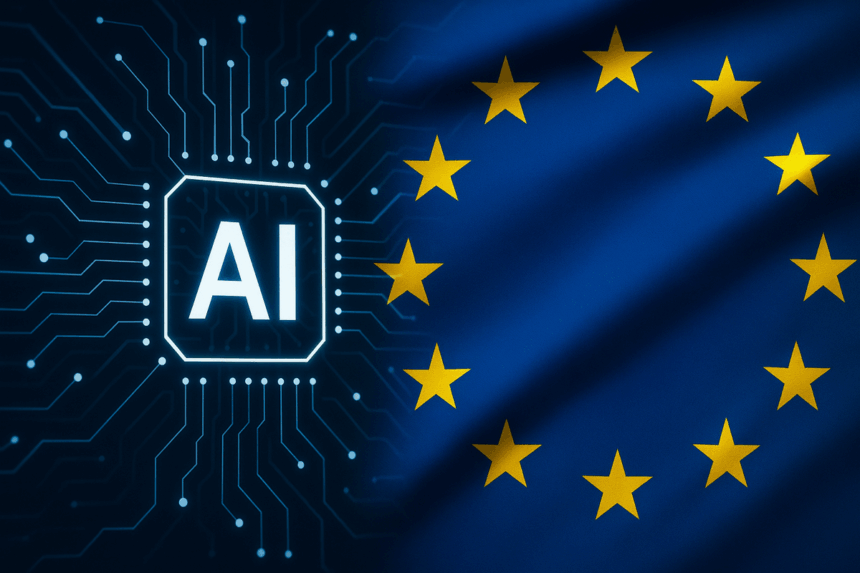The European Union faces a choice regarding global AI governance, with competing voices pressing for speed and caution. While European lawmakers and global leaders advocate for strict “red lines” to curb AI misuse, the European Commission is proceeding with its implementation of the AI Act, without delay.
What’s Happening & Why This Matters
At a recent European Parliament hearing, Yvo Volman, Director for Data at the European Commission, confirmed that there will be no pause in the AI Act’s rollout. Some leaders, including Italian Prime Minister Mario Draghi, had urged a temporary “stop-the-clock” approach. They cited unknown risks associated with powerful AI systems. Draghi suggested that companies and regulators need more time to understand the technology and its potential threats.
Volman made the Commission’s position clear:
“There is not going to be an overall moratorium on the AI Act. That is not on the table. We are focusing on making the rules work in practice.”
The AI Act, enacted in 2024, introduces a risk-based framework that categorizes AI tools based on their potential harm to society and the environment. Its phased implementation aims to give businesses time to adjust while ensuring accountability for technologies impacting public life.
Global Calls for AI’ Red Lines’
While Europe focuses on domestic regulation, a coalition of over 200 global leaders, including ten Nobel laureates, Members of the European Parliament like Brando Benifei and Sergey Lagodinsky, and tech executives from OpenAI, Google DeepMind, and Anthropic, is urging the creation of international AI “red lines.”
Unveiled at the United Nations’ 80th General Assembly, this initiative seeks to establish non-negotiable limits on AI use by 2026. Proposed safeguards include prohibiting AI from:
- Launching nuclear attacks
- Conducting mass surveillance
- Impersonating humans in deceptive ways
The campaign highlights concerns about AI-driven disinformation, engineered pandemics, and human rights abuses. Nobel Peace Prize laureate Maria Ressa warned of potential “epistemic chaos.” Furthermore, AI pioneer Yoshua Bengio cautioned that the rapid development of advanced systems poses threats societies are ill-prepared to manage.
A Wider Digital Plan
The EU’s digital simplification package, scheduled for release in December, to streamline transparency requirements and reduce regulatory burdens. However, Volman confirmed this will not involve a complete overhaul of the AI Act. The Commission will also publish a report connecting the Digital Services Act (DSA) to other digital regulations. Their aim is cohesive governance.
Meanwhile, tensions are rising with the United States, where President Donald Trump’s administration has criticized the EU’s strict regulations. They have also threatened tariffs against countries penalizing American tech giants.
Mental Health & AI Concerns
Adding urgency to the debate, recent studies show troubling inconsistencies in AI chatbot responses to sensitive issues like suicide prevention. Some chatbots gave safe guidance, while others provided harmful advice. These scenarios pose ethical questions about deploying mighty systems without robust safeguards. Several suicide cases have been linked to interactions with AI, underscoring the need for global safety standards.
TF Summary: What’s Next
The EU appears determined to enforce its AI Act without delay, framing itself as a global leader in AI regulation. However, without a unified international framework, the risk of fragmented governance grows. Calls for global “red lines” could accelerate negotiations toward a worldwide treaty, but geopolitical tensions may complicate the formation of a consensus.
MY FORECAST: The EU is forging ahead with its AI Act as global negotiations progress — slowly. The road ahead presents businesses with a complex mix of local and international regulations.
— Text-to-Speech (TTS) provided by gspeech


